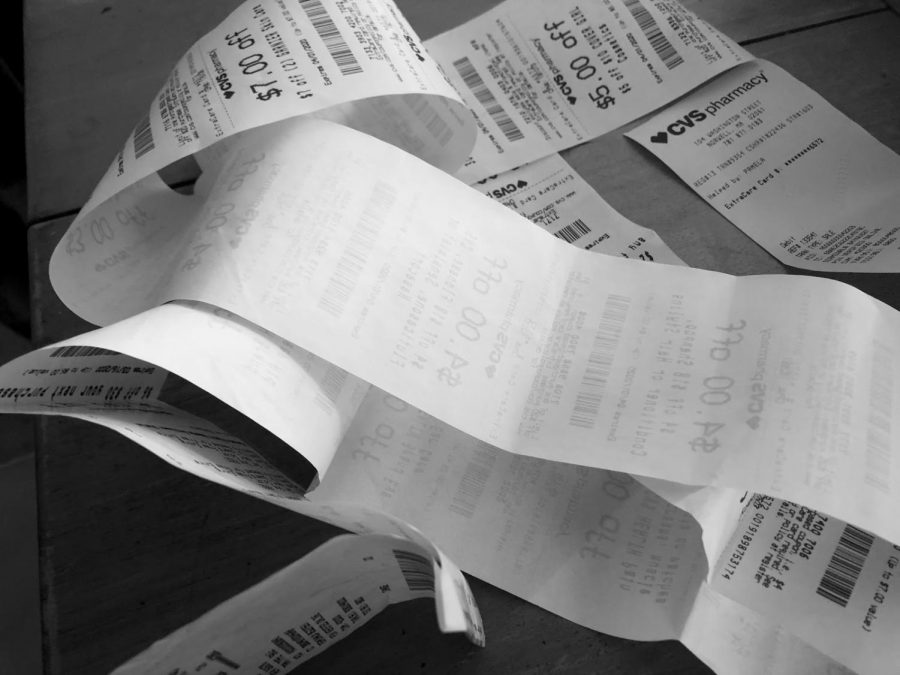CVS Should be Stepping Up
April 2, 2020
You step through the doors of CVS–a local drugstore oasis for many New-Englanders. You only intend to buy one simple item but end up with an excess of product spilling out of your arms. As you’re checking out, the cashier reaches over the counter to hand you a folded receipt in an effort to disguise its lengthy appearance. Once you unravel the receipt, it spills to the floor.
It’s no secret that CVS is synonymous with receipts that customers jokingly claim could “reach the moon.” In an age of increased environmental consciousness, one would think the company would be doing more to address this issue. Scituate High School junior and CVS employee Will Fondulis observed how “all customers, new or frequent visitors, all make jokes about how CVS is about being healthy and making the world a better place, but they are just using up so much wasted paper with the receipts.”
Coated in the toxin Bisphenol-S (BPS), the receipts pose a risk both to consumers’ health and to the environment. Studies have shown this toxin can lead to hormonal changes, endocrine damage, and reproductive harm. The toxin can even hinder heart function and possibly lead to obesity. Extremely similar to Bisphenol-A (BPA), BPS has started to replace BPA in products, essentially misleading consumers nationwide. Countries such as Canada, China, and Malaysia have taken action by banning BPAs in baby bottle production; while the United States Congress has taken no action against BPAs.
Other major US retailers have started to look for both BPS and BPA-free alternatives for their receipt paper. Meanwhile, CVS appears to be dormant in their response to criticism of their notorious receipts.
The company is no stranger to adapting to environmental concerns: CVS has been offering 80% post-consumer recycled material bags in places where plastic bag bans are in effect. Although some have struck down these efforts as still hurting the environment, the company is demonstrating an effort to appeal to some of the demands of the current market. So why hasn’t this translated over into the style and format of their receipts?
CVS ExtraCare account holders can “opt-in” to receive digital receipts, but this option is not widely advertised; subsequently, most customers continue to receive paper receipts in lieu of digital ones.
Each year in the United States, 10 million trees are used for the production of paper receipts. Discontinuing the use of paper receipts at stores like CVS will help contribute to the recent momentum we’ve gained with the environmentally-conscious movement. Ending deforestation is a steep task, but ending the use of paper receipts is a reasonable goal. CVS could take the lead in this effort, set an example for other companies, and help preserve the health of our country.
